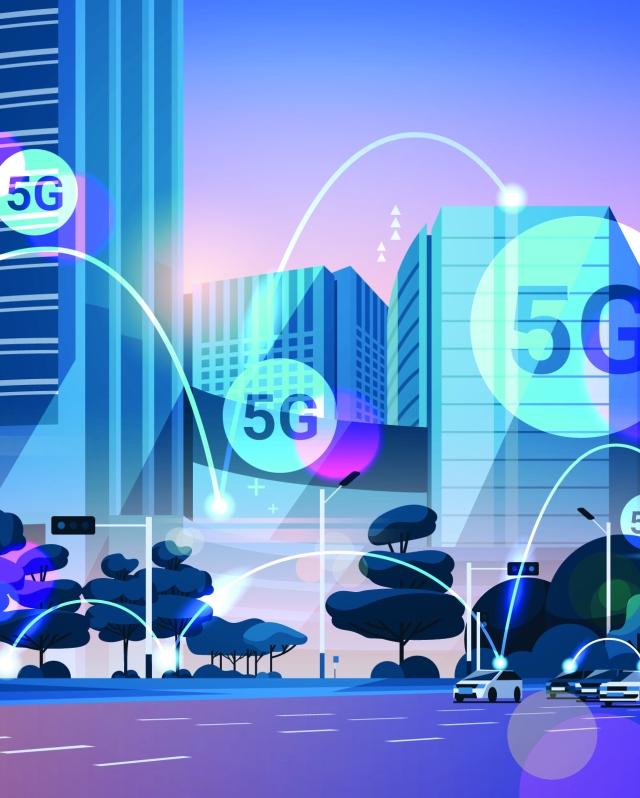Car Apps Aren't Connecting
In-car technology continues to make automobiles increasingly connected, meaning automakers are now faced with new challenges to deliver a high-quality user experience similar to mobile phones and tablets.
While nobody can predict the dominant interface to future mobility, there likely will be one device driving interaction with digital mobility services and products: the smartphone. Future success in such a rapidly changing space means no automaker can afford to miss the mark, but some are at risk of doing so.
Unfortunately, this would not be the first time that automakers have failed to compete with emerging technology — remember the car phone?
In general, most consumers do not perceive automotive manufacturers as technology leaders. Infotainment systems — which automakers have invested in heavily — are losing out to tech giants such as Apple and Google, as integration of CarPlay and Android Auto continues to lessen the need for many native features, including voice recognition and navigation.
The first onboard systems running on Google's Android Automotive OS are now being released. Volvo's electrified XC40, Polestar 2 and future Polestar models will feature an infotainment experience powered completely by Google. Falling behind in this area could eliminate the need to develop content offered by infotainment systems and, subsequently, lead to an inability to design them in a way that supports a brand's image.
Apps are lacking
As connected capability grows, automakers are investing significant resources in developing mobile apps for their vehicles. Despite a considerable effort, many apps are falling short of automakers' hype. In the interconnected world of smartphone apps, the negative consequences of not delivering what's promised can be profound, especially if the app is linked to features related to connectivity, mobility, electrification and automated driving.
We know that, at the industry level, lack of functionality is a primary concern of vehicle owners, making automotive mobile apps less valuable from a utility perspective and potentially not worth a subscription cost. Several apps offer very little remote status information, such as fuel level or driving range. This is information consumers would find useful: 46 percent of consumers surveyed indicated they would like access to this functionality at least once a week.
Performance also was an issue, particularly the time required to complete an action. For example, remotely locking and unlocking some vehicle doors took more time to control through the app than by using an alternative method such as a key fob. According to those surveyed, 88 percent indicated they expect an automaker app to complete a task within 10 seconds. In reality, many apps take much longer.
The time to send a notification that a task has been completed isn't much better. For example, one app may take 15 seconds to unlock the doors but 3 minutes to send a notification that the task was completed, while another brand's app might take 95 seconds to confirm the doors were unlocked. These examples stand in contrast to customer expectations — more than 82 percent expect feedback within 10 seconds. Even more striking, nearly half of consumers (49 percent) expect a status notification on the executed task within 5 seconds, yet only one brand achieved that benchmark.
Confusing options
Several brands offer too many options in the App Store that look alike, causing confusion around the purpose and function of each app. This multi-app approach creates frustration for users and potentially results in missed use opportunities and a perceived lack of value.
While the proliferation of vehicle apps is on the rise, and more consumers see benefits and issues with these technologies, there is another piece to the puzzle: How will these connected-vehicle apps add value for customers and increase their satisfaction with automakers' products? Will it be remotely activating honking or flashing headlamps, or do there need to be other captivating functions to get consumers to use them consistently? Until industry disruption requires completely different use cases, consumers want features that provide clear and useful daily interactions with their vehicles — using an app as a digital key is one example.
The success of industry disrupters and business models attached to apps will be defined by the acceptance of access points on smartphones or other smart devices. Keeping customers connected at all times will be critical. Without easy and well-functioning access to helpful and valuable digital services, there won't be a solid and sustainable business model in future areas of the automotive industry.
As with any new consumer technology, smartphone makers overcame obstacles to develop a category of devices that have become an essential part of our everyday lives. If there is one thing to remember about car phones, it's that doing things right from the start is critical. Learning from tech industry leaders today will support manufacturers in staying relevant tomorrow.
AUTHOR: FABIAN CHOWANETZ AND KATHLEEN RIZK
Members of J.D. Power's Automotive Consulting group
Source: Automotive News. Learn more about this news, click here.

